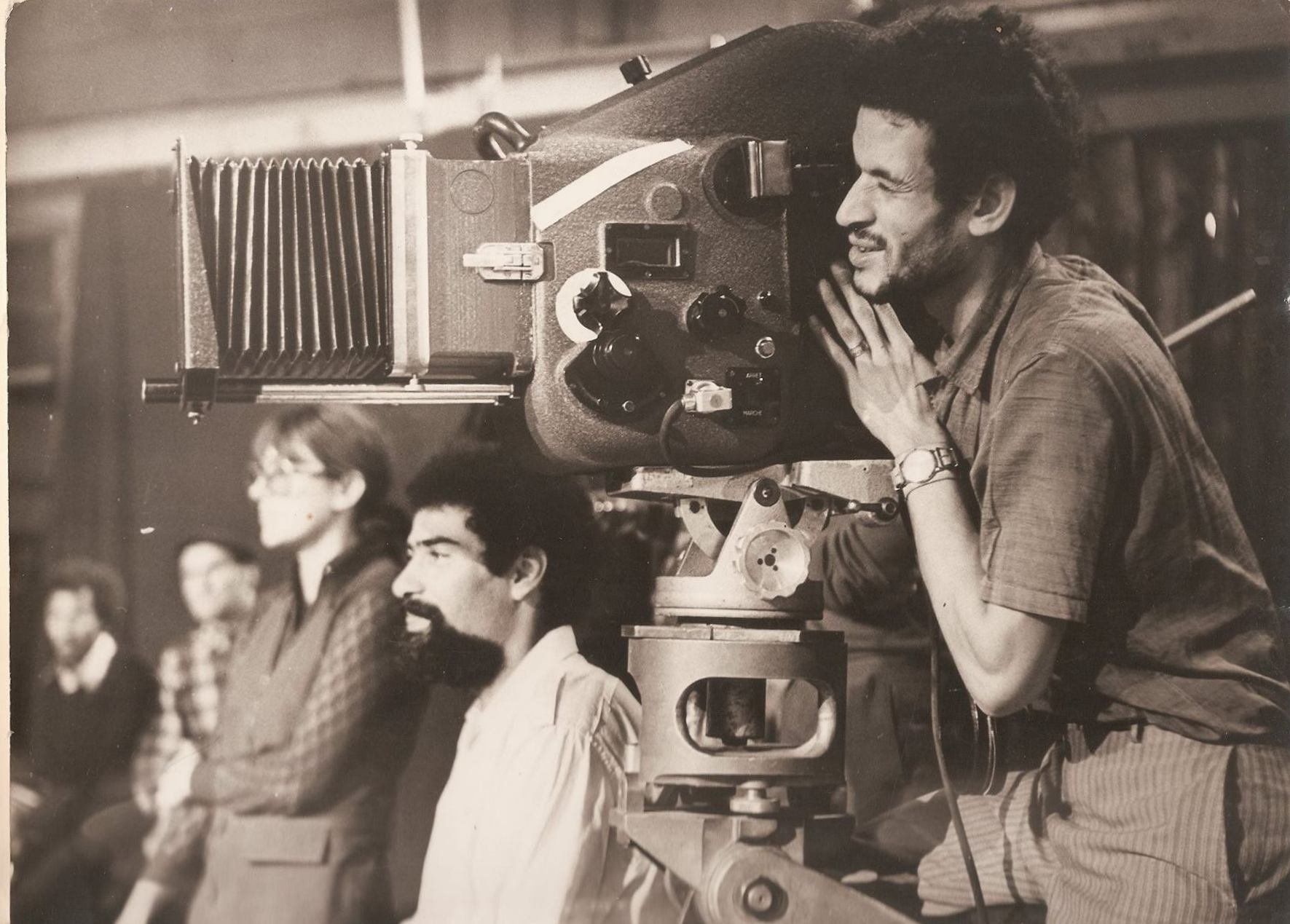About Some Meaningless Events
Mostafa Derkaoui is a filmmaker and pioneer of modern Moroccan cinema
“A cinema is strong when the audience makes it strong.” (Nadir Bouhmouch and Elias Terrass, Al Jazeera)
Mostafa Derkaoui’s ironically titled film About Some Meaningless Events is a Moroccan new-wave docu-fiction from the 1970s. After one showing in Paris, it was banned and seemingly lost in history, until a negative resurfaced in Barcelona’s Filmoteca de Catalunya in 2016. Derkaoui and his crew took to the streets of Casablanca to discuss Morocco’s national film industry (Centre Cinématographic Morocain), and cinema’s wider purpose.
The film blends reality with fiction seamlessly as it transitions between interviews with the public and actors, which emphasises the film's realism; visually displaying the impact and purpose of cinema in the real world beyond the screen by involving the spectator.
The central debate around the purpose of a Morroccan cinema can be split into entertainment and social critique. Generally, commercial cinematic industries, like Hollywood, are used for describing what film shouldn’t be. Escapist films, although enjoyable to watch, offer little in terms of raising social consciousness or educational value. Although escapist fantasy films can discuss philosophical and even anti-capitalist themes, it is done in a way that often satirises them and the viewer. Any radical potential is nullified as we are no longer the exploited masses, but complicit consumers.
“Cinema should stop being elitist. Cinema shouldn’t be just for the bourgeois who go to the cinema in order to laugh and to see beautiful kiss scenes.”
Escapist fantasy films are created for the purpose of making profit, and profit alone. It is a cinema created by the bourgeoisie for their own self-serving purposes. As global cinema is dominated by Hollywood, which is dominated by wealthy producers, it naturally reflects the values of these elites, i.e. the maintenance of existing material conditions. These types of films provide a comforting cathartic struggle, one that is self-contained and safe for general viewing. But also, allows us to enact any revolutionary desires of good defeating evil over a bag of popcorn. They are not made to make the viewer think deeply about the genuine, nuanced injustices of modern society.
Due to this hegemony, it is hard to imagine a cinema that isn’t simply for bourgeois entertainment. However, About Some Meaningless Events begins to paint a picture of what an alternative, revolutionary cinema could look like.
“A cinema which comes from the public and destined for the public.”
In the street interviews with the people of Casablanca, the most common wish was for Morroccan cinema to reflect Morrocan problems. For the people to develop a greater social consciousness, their issues must be represented; through an identifiable visualisation that aims to challenge the status quo by questioning the structures which uphold it. This highlights the importance of a cinema from and for the people, replacing the traditional, hierarchical top-down approach.
Cinema must be “committed to the working class problems” and should be a form of “cultural education” for the masses. Cinema should raise the “...awareness of regular spectators, so they can get used to a certain kind of cinema”.
However, what is the kind of cinema we must get used to? Firstly, revolutionary cinema should not say “obvious things everybody knows”. There is no educational value in pointing out blatant truths, yet it must also be accessible. It must be “lucid” in its discussion of societal obstacles. Films with a social focus are in danger of becoming “too intellectual for regular people”, due to an academic authority in the development of theory. A ‘public’ cinema can become a bridge between the two, codifying conceptual ideas for the masses.
Revolutionary cinema is nothing if it cannot convey its ideas. It will never raise the collective consciousness if the collective has heard it before, or if its ideas are not explained in a comprehensible way. Cinema is ineffective if it cannot speak to the people, and for this to truly happen, it must be produced by the people.
Yet, the contradiction of this discussion in the context of a national cinema is abundantly clear as the film was banned by the Morroccan government. Censorship within national cinema is common, but not exclusive to it. Restrictions in media will continue to occur, as long as the ruling class control it, nationalised or not. The intentions of an unrestricted and genuinely revolutionary cinema would aim to destroy the oligarchy of modern society, therefore, it is in establishments best interests to suppress it.
Nevertheless, About Some Meaningless Events imagines a greater potential for the medium of film. One that isn’t confined to franchises and reboots. One that, rather than distracting its audience with spectacle, attempts to leave a lasting impact on the viewer, and beyond.
(All quotations taken from the film About Some Meaningless Events, 1974, unless otherwise stated)
By Henry Kidney



